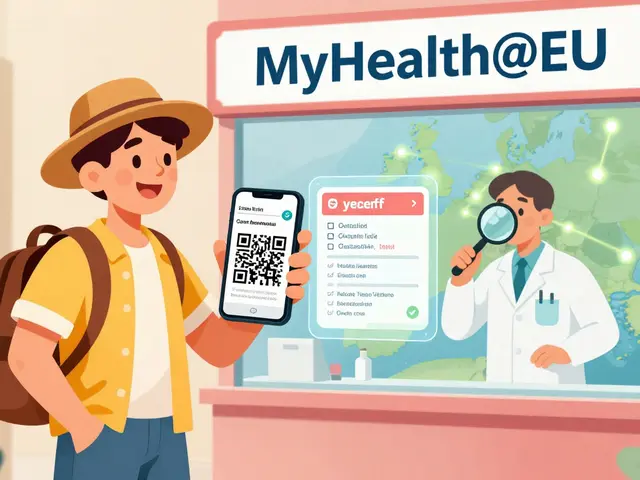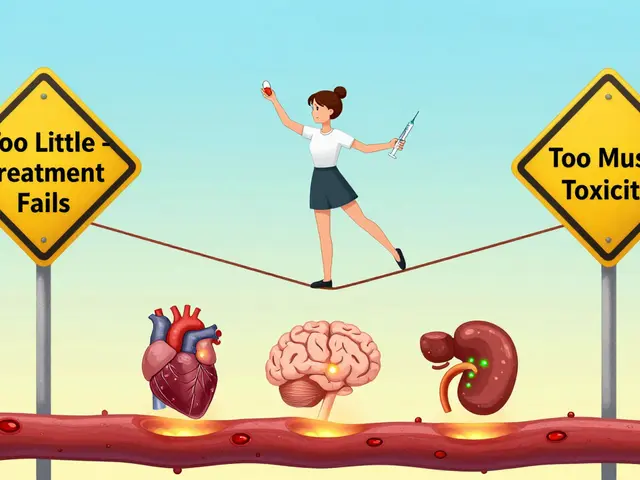Heart medication: what to know and how to stay safe
Heart medicines keep you alive and active. They work in different ways: lowering blood pressure, preventing clots, easing heart rhythm problems, or reducing cholesterol. Knowing the basic types and simple safety steps makes a big difference in daily life and when shopping online.
Common heart medications
ACE inhibitors like lisinopril and perindopril relax blood vessels to lower blood pressure and reduce strain on the heart. ARBs such as losartan do a similar job for people who can’t take ACE inhibitors. Beta-blockers — metoprolol, carvedilol — slow the heart rate and reduce workload after heart attacks or with heart failure. Diuretics like spironolactone and furosemide help the body shed extra fluid and are common in heart failure care. Statins such as atorvastatin lower cholesterol and cut risk of future heart attacks. Anticoagulants — warfarin, apixaban — prevent dangerous clots but need careful monitoring. Each group has clear benefits and specific side effects you should know.
If you take several drugs at once, interactions matter. For example, combining certain diuretics with ACE inhibitors changes potassium levels. Some antibiotics or over-the-counter drugs raise bleeding risk when taken with anticoagulants. Keep a single, up-to-date list of all prescriptions, supplements, and over-the-counter items and share it with every healthcare provider.
Practical tips for taking and buying heart meds
Follow the exact dose and timing your doctor gives. Don’t stop suddenly without medical advice — some drugs cause rebound effects. Ask your provider which side effects are urgent (shortness of breath, fainting, chest pain, major swelling, or unusual bleeding) and which are manageable at home.
Buying online? Use only licensed pharmacies that require a prescription. Look for clear contact details, a pharmacist phone line, and registration with a national regulator. Cheap prices can be tempting but beware of sites that don’t ask for a prescription or offer pills with little product information. When ordering abroad, check shipping times, customs rules, and whether the brand and dosage match your prescription.
Routine monitoring keeps treatment safe. Blood pressure checks, blood tests for kidney function, electrolytes, and cholesterol are common. If you’re on warfarin, regular INR testing matters. For newer anticoagulants, periodic kidney checks are advised. Keep a simple log of measurements and symptoms to discuss at visits — this makes appointments faster and clearer.
Traveling? Pack enough medication plus copies of prescriptions. Carry meds in original packaging and know where to find emergency care at your destination. If a dose is missed, follow the instructions on your prescription label or ask your pharmacist rather than guessing.
If you’re unsure about a recommendation online or a blog post, ask your clinician. Practical questions—what to expect, which tests, how to buy safely—are worth a quick call. Small steps like a reliable pharmacy, an updated medication list, and regular monitoring protect your heart and give you more confidence every day.
If you notice new symptoms after a medication change, contact your care team right away. Quick checks can prevent complications and keep treatment effective and avoid surprises.
Toprol, also known as metoprolol, is a common beta blocker prescribed for high blood pressure, heart issues, and even migraines. This article dives deep into how Toprol works, its benefits, possible side effects, and practical tips for living well while taking it. By understanding this medication better, patients and families can feel more confident managing health challenges. If you're starting Toprol or want to know if it's right for you, get honest answers—minus the confusing medical talk.
View Details

